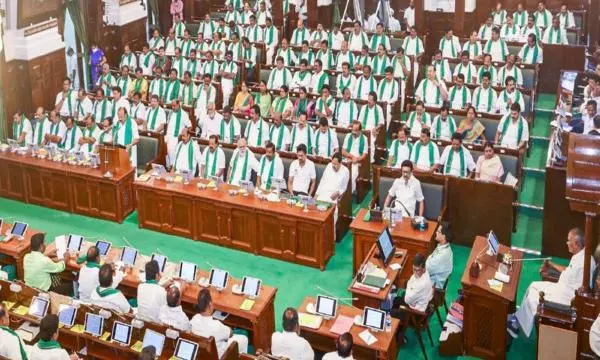TN Resolution to Reclaim Katchatheevu Island
The Tamil Nadu Assembly has recently passed a resolution urging the Government of India to reclaim Katchatheevu island from Sri Lanka. This decision received unanimous support from all political parties present. Chief Minister MK Stalin has brought into light the ongoing issues faced by Tamil Nadu fishermen, who frequently encounter arrests by the Sri Lankan Navy. The resolution reflects political and social concern for the rights of local fishermen and the historical context surrounding Katchatheevu.
Background
Katchatheevu is a small island located in the Palk Strait, positioned between India and Sri Lanka. The island was ceded to Sri Lanka in 1974 under an agreement signed by both nations. This transfer has since become a contentious issue, particularly for Tamil Nadu fishermen who often fish in the waters surrounding the island. The arrests and confiscations of fishing boats by the Sri Lankan Navy have intensified calls for the island’s retrieval.
Maritime Boundary Agreement
For a long time, fishermen from India and Sri Lanka fished in each other’s waters without any issues. However, when both countries signed agreements in 1974 and 1976, the situation changed.
- 1974 Agreement: It set the maritime boundary in the Palk Strait. Each country got full control over the waters, islands, and seabed on its side of the boundary. However, both Indian and Sri Lankan vessels were allowed to pass through each other’s waters.
- Allowed for Indian Fishermen: They could rest, dry their nets, and visit St. Anthony’s festival without a visa.
- Prohibited for Indian Fishermen: They were not allowed to fish in Sri Lanka’s waters, including its territorial sea and Exclusive Economic Zone.
- 1976 Agreement: It finalized the maritime boundary between India and Sri Lanka, without consulting Tamil Nadu’s government. It also required both countries to follow international law for navigation in each other’s waters.
What is the Conflict?
- Fish Depletion – Indian fishermen crossed into Sri Lankan waters because fish populations in India’s waters had decreased. They also used modern fishing trolleys that harmed marine life.
- Arrests and Clashes – Sri Lanka started protecting its waters strictly, arresting Indian fishermen for trespassing. Sometimes, conflicts turned violent, despite agreements to avoid force.
- Security Concerns – In 2009, Sri Lanka increased patrols in the Palk Strait to prevent the return of Tamil insurgents.
What is Centre’s Position?
- The Indian government says Katchatheevu was always disputed and was not “ceded” because it was never fully under India’s control.
- The agreement states the island is on Sri Lanka’s side of the maritime boundary.
- India has raised concerns with Sri Lanka at the highest political levels.
- The case is still pending in the Supreme Court of India.
Month: Current Affairs - April, 2025
Category: States Current Affairs








